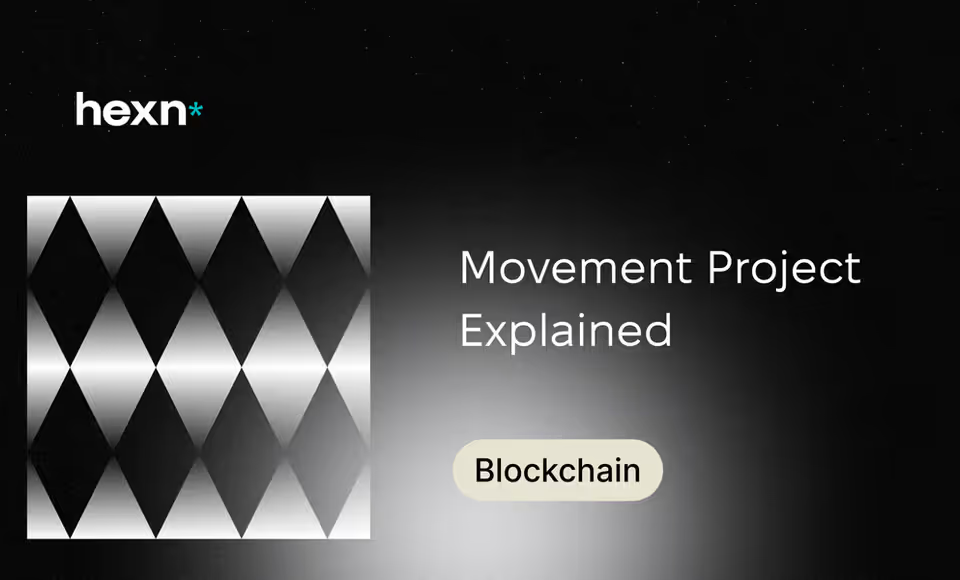Movement Project Explained
What Is Movement?
Movement is a modular network of blockchains designed to bring the performance and security of the Move programming language to the Ethereum ecosystem.
As a Layer-2, it aims to provide a high-throughput environment for developers to build and deploy applications, combining the best of both the Move and EVM worlds.
Quick Facts About the Movement Project
- MoveVM runs both Move and Ethereum bytecode so developers can use new Move features or reuse existing Ethereum code.
- Decentralized Shared Sequencer coordinates transactions to avoid censorship and unfair ordering.
- Move Rollups let teams create application-specific Layer 2 chains with custom settlement and data availability options.
- The native MOVE token powers staking, fees, governance, and cross-chain liquidity within the ecosystem.
The Core Architecture
MoveVM: A Dual-Execution Engine
MoveVM is the engine that executes transactions. It supports Move bytecode for apps built with the Move language and also accepts Ethereum Virtual Machine bytecode. That dual compatibility helps teams adopt Move features without abandoning existing Ethereum tooling and libraries.
Decentralized Shared Sequencer
The Decentralized Shared Sequencer acts like a neutral traffic manager for transactions. By distributing sequencing responsibilities it reduces the risk of censorship and makes front-running or priority ordering harder to pull off, improving fairness for users and dApps.
Move Rollups: Customizable Layer 2 Chains
Move Rollups are modular L2 instances that developers can configure for specific use cases, such as DeFi, gaming, or supply chain tracking. Teams can pick settlement methods like optimistic or ZK-style validation, choose data availability providers, and tune finality vs cost trade-offs to match their application needs.
Security, Speed, and Interoperability Advantages
Movement focuses on three practical gains:
- Stronger safety through Move's resource-oriented design and support for formal verification, which helps reduce bugs and asset-exposure issues.
- Faster finality so transactions reach settled status in seconds in many cases, improving user experience compared with slower rollup models.
- Cross-ecosystem composability that allows liquidity and contracts to interact across Move-based and Ethereum-based environments.
The MOVE Token
The MOVE token is the utility and governance token of the Movement network. Its key functions include:
- Staking to secure network services and support decentralized sequencing.
- Transaction fees and execution payments inside Move-based chains.
- Governance for protocol upgrades and fund allocation decisions.
- Cross-chain liquidity to facilitate asset flows between connected chains.
- Incentives and rewards for developers and users participating in network programs.
- Economic security within multi-asset staking models to strengthen overall network resilience.
Recent Token Distribution Event
In December 2024, eligible token holders received an airdrop of MOVE tokens through an exchange reward program, and MOVE began trading on several markets around the same time. That distribution helped seed liquidity and brought early users into the ecosystem.
Final Thoughts
Movement offers a pragmatic and powerful vision for the future of Ethereum scaling. By providing a unified environment for both Move and EVM, it eliminates the need for developers to choose between the two ecosystems.
Its modular design gives projects the freedom to build highly optimized, application-specific blockchains, making it a compelling platform for anyone looking to build the next generation of high-performance dApps.
